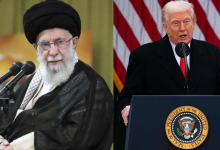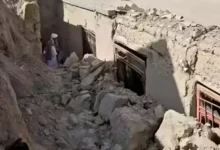Taliban Issues Stark Warning to Pakistan Amid Latest Breakdown in Border Talks

In a sharp escalation of tensions along the Afghanistan-Pakistan frontier, the Taliban regime has issued a dire warning to its eastern neighbor, declaring readiness for armed conflict following the repeated failure of diplomatic negotiations in Istanbul. The Afghan authorities, through a high-level delegation, expressed profound frustration over Pakistan’s perceived intransigence during the latest round of discussions aimed at resolving longstanding border disputes.
The talks, hosted in the Turkish capital under the auspices of international mediators, collapsed without any progress, marking yet another impasse in efforts to de-escalate the volatile situation. Sources close to the negotiations revealed that the primary sticking point remained Pakistan’s insistence on stricter enforcement of border controls, which the Taliban viewed as an infringement on Afghan sovereignty. “We came prepared to discuss peace, but their demands were unacceptable,” a Taliban spokesperson stated curtly after the abrupt end to the sessions.
This development comes against a backdrop of heightened military activity on both sides of the Durand Line, the contentious 19th-century boundary that has long fueled discord between the two nations. In recent months, cross-border skirmishes have intensified, with reports of artillery exchanges and incursions claiming dozens of lives, including civilians. The United Nations, through its special envoy for Afghanistan, has urged restraint, emphasizing in a statement that “further militarization risks a humanitarian catastrophe in an already fragile region.”
ALSO READ : Taliban Issues Warning After Collapse of Afghanistan-Pakistan Peace Talks
Pakistan’s foreign ministry, in response, defended its position, asserting that the measures were necessary to curb militant activities originating from Afghan soil. “Our security cannot be compromised,” a ministry official told reporters in Islamabad, while denying any intent to provoke war. However, the Taliban’s rhetoric has struck a particularly ominous note. In a televised address, a senior Taliban commander declared, “If Pakistan chooses the path of aggression, we are fully prepared to defend our territory with all means at our disposal.” This comes as the group bolsters its forces along the frontier, deploying additional troops and heavy weaponry.
International observers, including analysts from the BBC and Al Jazeera, warn that the breakdown could unravel fragile ceasefires and invite broader instability, potentially drawing in regional powers like Iran and India. The European Union has called for renewed multilateral engagement, with diplomats from Brussels scheduled to meet counterparts in Kabul next week.
As the dust settles from the Istanbul fiasco, both sides appear entrenched, with little indication of imminent reconciliation. The Taliban’s unflinching posture underscores a shift toward self-reliance in foreign policy since regaining power in 2021, while Pakistan grapples with internal pressures from its own security apparatus. For the millions living in the shadow of this porous border, the specter of open hostilities looms larger than ever, testing the limits of diplomatic goodwill in South Asia’s most combustible corridor.




